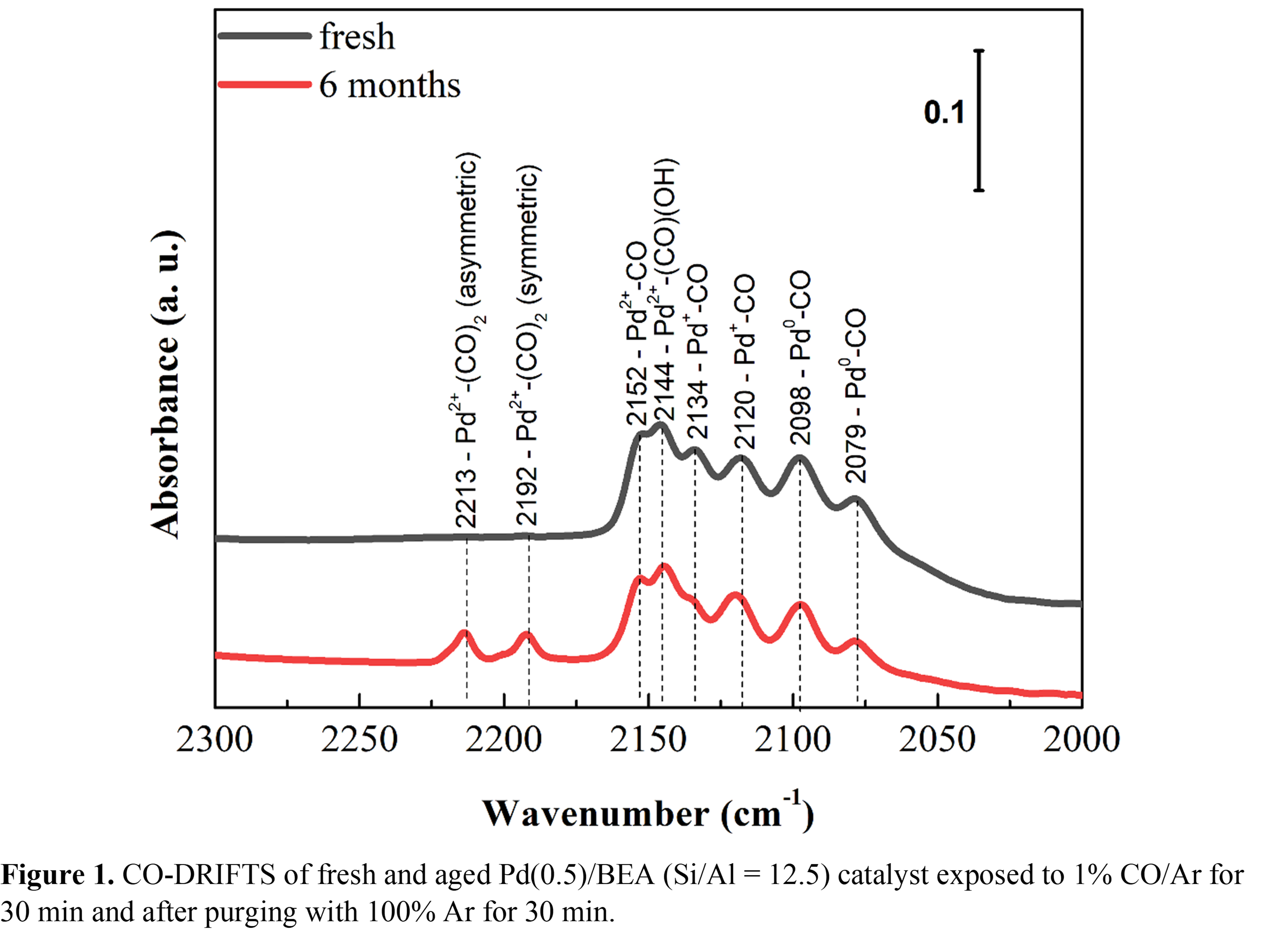2022 Annual Meeting
(228c) Effect of Pd Speciation on CH4 Oxidation and Passive NOx Adsorption/Desorption Performance over Zeolite-Based Catalysts
Authors
Tala Mon - Presenter, University at Buffalo
Chih-Han Liu, University At Buffalo
Junjie Chen, University At Buffalo
Eleni Kyriakidou, SUNY at Buffalo
Pd speciation as facilitated by zeolite frameworks in the forms of ion-exchanged Pd and PdO nanoparticles allow Pd-based zeolite catalysts to be used as both passive nitrogen oxide (NOx) adsorbers (PNAs) and methane (CH4) oxidation catalysts (MOCs). Ion-exchanged Pd species are identified to be the adsorption sites for PNAs, whereas PdO nanoparticles are the active sites for MOCs. Maintaining the desired Pd species is essential for ensuring stable performance long term in both PNA and CH4 oxidation applications; however, Pd speciation is dynamic under long term exposure to ambient conditions. Herein, 0.5 wt.% Pd/zeolite catalysts were synthesized as Pd(0.5)/BEA (Si/Al = 12.5), Pd(0.5)/ZSM-5 (15), and Pd(0.5)/SSZ-13 (12.5) and aged under ambient conditions. Evaluation of the PNA and CH4 oxidation performance of the fresh and aged catalysts was used to probe ion-exchanged Pd and PdO nanoparticles, respectively. The NOx adsorption capacity of fresh Pd(0.5)/BEA (NOx/Pd molar ratio = 0.78) decreased after aging (NOx/Pd = 0.25), while the CH4 conversion improved at 600 oC from 10 to 60%. The probe reactions indicate a decrease in ion-exchanged Pd and an increase in PdO nanoparticles (supported by TEM) of the aged Pd(0.5)/BEA. Pd speciation was also monitored using H2-TPR for ion-exchanged Pd and O2-TPD for PdO. CO-diffuse reflectance infrared Fourier transform spectroscopy (DRIFTS) of the fresh and aged Pd(0.5)/BEA catalyst (Fig. 1) showed a decrease in ion-exchanged Pd at 2134 cm-1 and an increase in pore confined Pd ions at 2213 and 2192 cm-1. The presence of the pore confined Pd ions implies solvation by H2O of the ion-exchanged Pd and detachment from the zeolite framework to become mobile. The mobility of Pd as promoted by H2O is a possible mechanism for the increased formation of PdO nanoparticles, suggesting that ambient moisture plays a role in Pd speciation.


